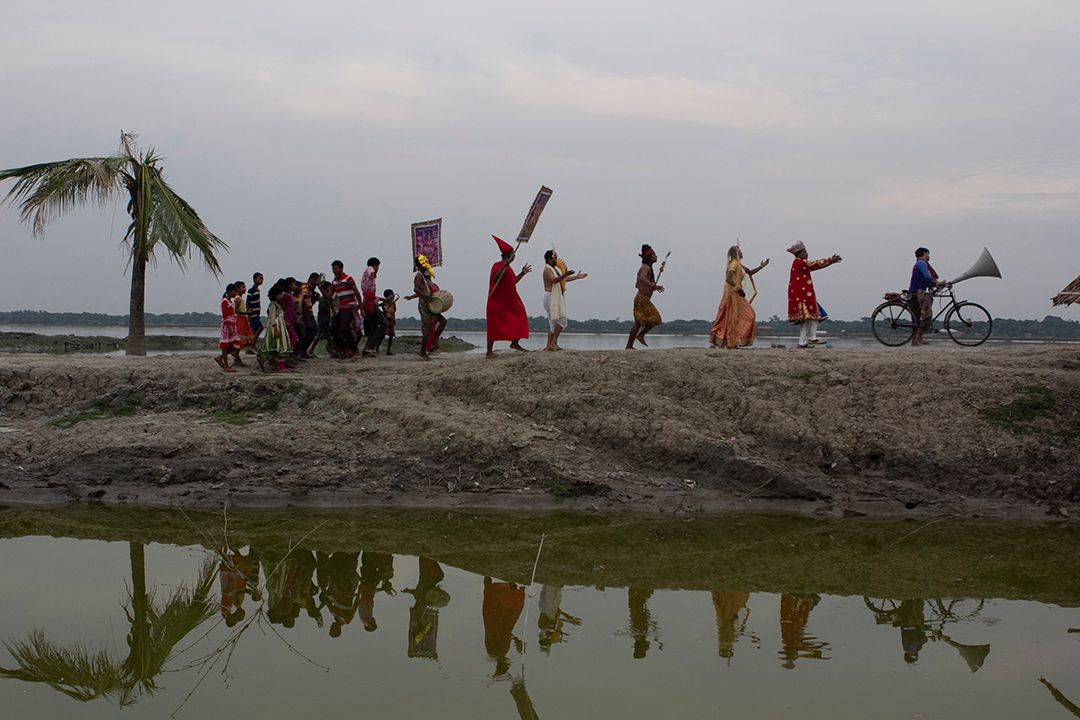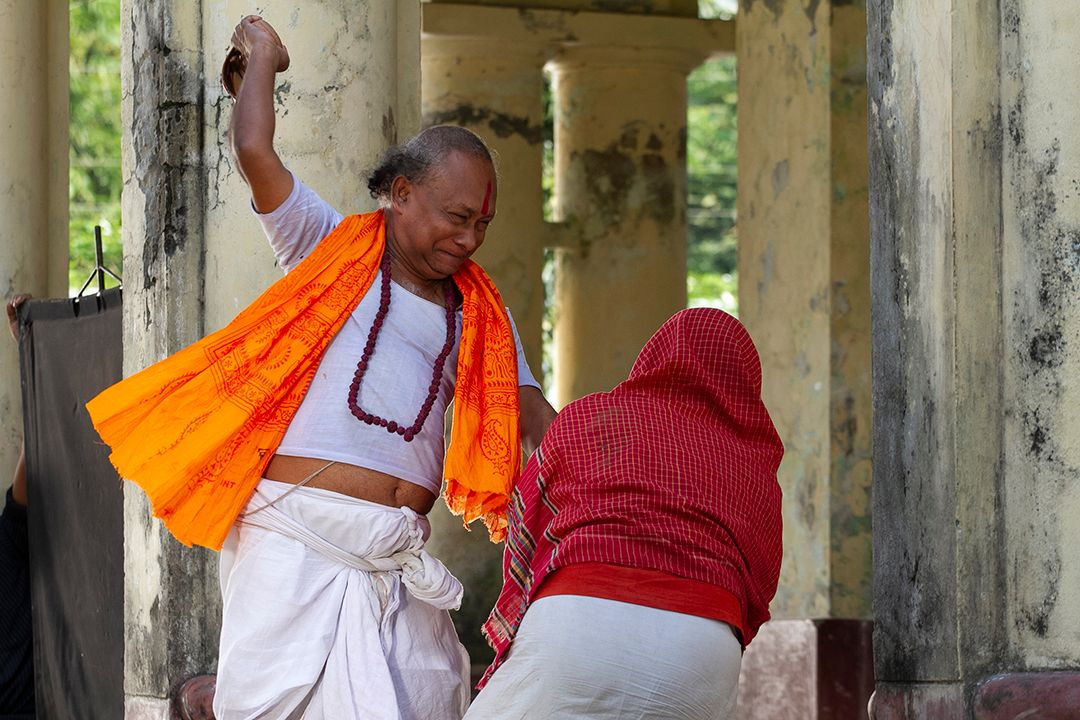Film conveys villagers’ resilience to climate change, conservatism

While marginalised communities in coastal Bangladesh have to grapple with hardships because of climate change, societal expectations and pressures exacerbate their situation. The film, Nona pani, delves into their hurdles, shattered dreams and above all, their resilience. Experience their inspiring journey towards reclaiming their narratives.
Since childhood, I have been driven by a strong desire to protect the vulnerable. As our community faced the challenges brought by natural disasters, I felt compelled to convey our hardships through storytelling. While exploring various art forms, including theatre, poetry and photography, I discovered the immense power of films in combining these expressive mediums.
From a young age, I nurtured an unwavering aspiration to share stories that deeply resonated with people. Yet, in the conservative society of coastal Bangladesh, pursuing my dreams posed significant obstacles not only for me but also for those around me. Nevertheless, an inner fire burned within me, urging me to confront a pressing question: How can we illuminate the often neglected narratives of marginalised communities and empower them to reclaim their own stories?
I decided to show this richness by telling the stories of the communities that did not fit into the single narrative of my country. One by one, the heroes of my films became devices of hope for their communities. The diverse communities embraced me, allowing me to tell their stories to the world.




Clockwise from top left: a traditional entertainment group of rural Bangladesh; villagers have to cross many hurdles to collect drinking water; the vulnerability of coastal Bangladesh is depicted powerfully through the medium of film; the film portrays how the powerful people oppress the poor. Photos: Parallel Cine Movement
Discovering heroes in Botkhali
Breaking away from formulaic narratives, I aim to bring the magic of cinema to my hometown of Khulna and explore the depths of human experience through films like Nona pani (Barren waters). Set in coastal Bangladesh, this film was inspired by the changing nature of Khulna and the struggles faced by its inhabitants due to climate change and other crises.
It portrays the multifaceted lives of rural characters. In the heart of Botkhali, a small village near the Sundarbans in southwestern Bangladesh, I encountered three individuals who struggled to find their place in a seemingly forgotten world.
Romba, a 28-year-old woman, once held aspirations of a brighter future when she migrated to Botkhali after the devastating Cyclone Aila. However, her hopes were quickly shattered as she discovered that the land was barren, disrupted by shrimp culture. With determination, she ventured into the darkness of the night to gather shrimp eggs, regardless of the lurking dangers.
Doshpai, believed to be the biological son of the head of the local Hindu temple, faced a unique struggle as a queer person. Considered an outsider, he lived in an abandoned room near the temple, forbidden from entering the sacred space. Using his hidden talent, he skillfully pierced the ears and noses of villagers, forging intimate relationships through this act of connection.
Krishna, a 25-year-old woman with a mesmerising voice, battled deep insecurities about her body. Because she was told that she did not possess the physical attributes expected in a leading lady, which posed a hurdle to her aspirations of becoming a lead actress in a traditional rural theatre troupe. Subjected to humiliation, she resorted to superficial solutions, only to realise they couldn't sustain her dreams in the long run. Confronted by societal expectations, Krishna grappled with the dissonance between her talent and physical attributes.
My film, Nona pani, delves into universal struggles through these three protagonists grappling with displacement, shattered dreams and societal expectations. It received positive responses from the people of Khulna, empowering more communities and young filmmakers, especially women, to tell their stories.
By giving a voice to vulnerable communities, I believe we can challenge society and overcome natural disasters. This is both an achievement and an act of defiance, as filmmaking becomes a space for debate and dialogue and a tool for eradicating the darkness of ignorance.
And that is my power to continue the journey.
Official trailer of Nona Pani - Barren waters






Member discussion